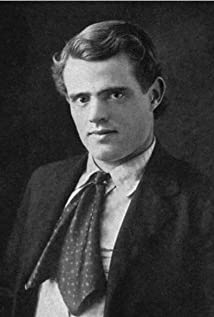Jack London
Jack London was the best-selling, highest paid and most popular American author of his time.
He was born John Griffith Chaney, on January 12, 1876, in San Francisco. He was raised by his mother Flora Wellman and his stepfather John London (he didn't know who his father was until his adulthood). After graduation from a grammar school he worked 12 to 18 hours a day at a cannery. Jack had a special relationship with his black foster mother, Virginia (Jenny) Prentiss. She loaned him some money and in 1891 he bought a sloop and became an oyster pirate. A few months later he joined the California Fish Patrol. In 1893 he joined the crew of a sealing schooner, bound for Japan. His first story, "Typhoon off the Coast of Japan", based on his sailing experiences, was published in November of 1893. Still unemployed, he became a tramp and hoboed around the country. In 1894 he was arrested for vagrancy and spent a month in jail, where he was a witness to "awful abysses of human degradation." His entire life, after these events, became a race to erase the traumatizing memories of his childhood and youth.
He continued his self-education at the Oakland Public Library. Among his readings were works by Gustave Flaubert and Lev Tolstoy. In 1896 he was admitted to the University of California, but after a year was forced to leave due to financial reasons. In 1897 he went to the Canadian Yukon and joined the Klondike Gold Rush. There he experienced all the hardships of uncivilized life and suffered from--among other things--severe frostbite, scurvy, malaria and dysentery. This left his health seriously impaired. London's struggles for survival inspired "To Build a Fire" (1902), which is considered his best short story. Writing became his ticket out of poverty; a way, in his words, to "sell his brains". His first marriage to Bess Maddern began as a friendship, not love, and ended 3 years later, leaving her with two daughters. His second marriage to Charmian Kittrdge, an editor, lasted until his death.
"The Call of the Wild" (1903) was his biggest success. "The Sea-Wolf" (1904) was turned into the first full-length American movie. Later came "The Iron Heel" (1908), a premonition of the Orwellian world, and the autobiographical "Martin Eden" (1909). The highest-paid writer of his time, he earned over $2 million yet

